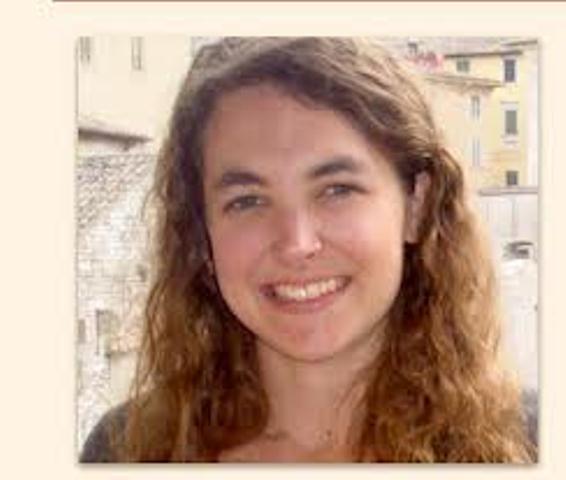Baylor Institute for Religious Studies Welcomes Lesley-Ann Dyer

Lesley-Ann Dyer courtesy photo.
Follow us on Twitter: @BaylorUMediaCom
Media contact: Terry Goodrich, (254) 710-3321
WACO, Texas (Jan. 31, 2014) - The Baylor Institute for Studies of Religion will welcome Lesley-Ann Dyer, Ph.D., ISR's 2013 Green Scholars Initiative Post-Doctoral Fellow in Manuscript Research, as she gives her topic, "Eternity at the Medieval Crossroads Between Athens and Jerusalem: the Perspectives of Anselm of Canterbury and Peter Abelard" Monday, Feb. 3.
Dyer will address the topic of what it means to say that God is eternal. Does it mean that God created time and exists outside of time? Or are these overly technical speculations a holdover from Greek Philosophy?
The viewpoints of two medieval thinkers, Anselm of Canterbury and Peter Abelard, will be analyzed.
"They both understand eternity to be an attribute of God that one understands because there's a real relationship between time and eternity, such that there's a real nature of time," Dyer said. "The nature of time tells us that there's an eternity. Our mind's ability to act in time tells us something about what it means for God to have a life that is unified and complete."
Another issue to be looked at, Dyer said, is whether reading scripture affects how humans view God. "The key term is 'divine illumination,'" she said. "Is it because of the way our minds operate, or is it because He can direct and guide the way our minds operate?"
Dyer has been fascinated by issues related to time and eternity since she was a University Scholar at Baylor from 2000 to 2004. After receiving her master's in philosophy from the University of Cambridge in 2005 and her Ph.D. from the University of Notre Dame's Medieval Institute in 2011, she taught for the Program of Liberal Studies at the University of Notre Dame and for the Center for Core Texts and Ideas at the University of Texas at Austin. Her participation in interdisciplinary programs as both as student and a teacher has inspired her to be faithful in her scholarship to the historically inseparable relationship between medieval theology and philosophy.
She has published articles and book reviews on Roman Catholicism, Platonism, Anselm, Peter Abelard, Hilary of Poitiers, Richard of St. Victor, Julian of Norwich and John Wyclif. Her book, "Translating Eternity in the Twelfth-Century Renaissance," is under contract with the university press at the Pontifical Institute for Medieval Studies in Toronto, Ontario.
Dyer's lecture is free and open to the public, and will take place from 3:30 to 5 p.m. in the Armstrong Browning Library's Cox Lecture Hall, located at 710 Speight Ave. To register for the event, click here or call (254) 710-7555.
by Rachel Miller, student newswriter, (254) 710-6805
ABOUT BAYLOR UNIVERSITY
Baylor University is a private Christian university and a nationally ranked research institution, characterized as having "high research activity" by the Carnegie Foundation for the Advancement of Teaching. The university provides a vibrant campus community for approximately 15,000 students by blending interdisciplinary research with an international reputation for educational excellence and a faculty commitment to teaching and scholarship. Chartered in 1845 by the Republic of Texas through the efforts of Baptist pioneers, Baylor is the oldest continually operating university in Texas. Located in Waco, Baylor welcomes students from all 50 states and more than 80 countries to study a broad range of degrees among its 11 nationally recognized academic divisions. Baylor sponsors 19 varsity athletic teams and is a founding member of the Big 12 Conference.
ABOUT THE INSTITUTE FOR THE STUDIES OF RELIGION
Launched in August 2004, the Baylor Institute for Studies of Religion (ISR) exists to initiate, support and conduct research on religion, involving scholars and projects spanning the intellectual spectrum: history, psychology, sociology, economics, anthropology, political science, epidemiology, theology and religious studies. The institute's mandate extends to all religions, everywhere, and throughout history, and embraces the study of religious effects on prosocial behavior, family life, population health, economic development and social conflict. While always striving for appropriate scientific objectivity, ISR scholars treat religion with the respect that sacred matters require and deserve. For more information, visit www.baylorisr.org